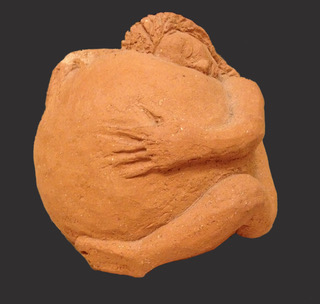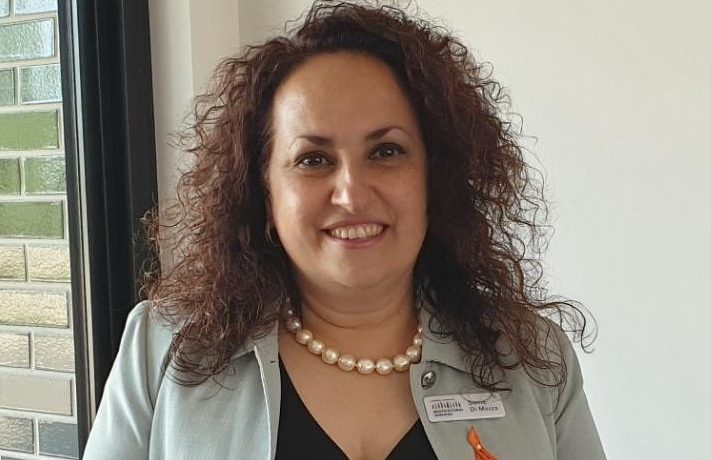That Offspring Episode

Posted on
A friend sent me a text last night to tell me to watch Offspring.
I had missed the first half of the show so I didn’t appreciate fully why she’d called me until the closing scenes. Like many women, I have had the experience of the death of a baby before his birth. I am grateful for the courage of the producers in tackling this topic.
The episode reminded me that I have a story to tell, not for my own catharsis but for the insights that are hard won out of the most painful experiences.
Some 20 plus years ago I was pregnant with our second child. Our first child, David, was three and we were excited and looking forward to the arrival of number two. My pregnancy with David had been delightful and uneventful. He was born at home with our excellent homebirth midwife with the back-up support and blessing of the wonderful staff at Canberra Hospital.
Part-way through my second pregnancy I was called back to the doctor’s surgery when a routine blood test raised a red flag.
The result raised the possibility that our baby was at higher risk of a chromosomal related condition such as Down syndrome. My doctor patiently explained that false positives were not uncommon for this test and recommended an ultrasound to allay our fears.
The period that followed was challenging and I am forever grateful for my husband’s quick acceptance and reassurance that we would be fine whether our baby had Down syndrome or not.
The ultrasound a little further down the track was a different matter.
I can’t remember how long after the blood test that I had the ultrasound.
To be honest, I have trouble remembering much pre-ultrasound and yet everything post the ‘we can’t find a heartbeat’ moment seems to be etched in extraordinary detail.
Laying on the ultrasound table. Watching the faces of the medical staff who were called in to look at the screen. Trying to figure out what they were seeing and thinking when it was clear that something wasn’t right. But no-one was saying anything….yet.
Of course, they couldn’t say anything until they were sure. No-one said ‘your baby has died’.
Eventually they said ‘we can’t find a heartbeat’ and we were ushered to a special room.
And this is where my story departs a little from the Offspring script. To realise that my baby had died followed immediately by the news that I would be admitted to hospital the next day so that the labour could be induced, raised a clear, loud ‘No I won’t’ within me. It was an immediate sense of unfairness, very quickly replaced with a fierce, deep protectiveness towards my unborn and ‘allegedly’ dead baby.
It was not that I didn’t believe my baby was dead. It is simply that some information cannot be processed that quickly. My immediate desire was to run for the hills as quickly as possible, arms around my belly so that this theft could not take place.
I left the clinic and returned home. None of my surroundings were familiar. Everything was changed. I was changed.
I rang my midwife. She let me know that there were other options. She said that I could trust my body to go into labour by itself at the right time. Knowing that I could have some control over the situation and do it in my time gave me a small but important measure of comfort.
The next day I spoke with the Doctor I’d been assigned by the hospital about my desire to wait a little.
This decision had no connection to any ideology about anything. It was the desperate attempt to find air when you’re drowning and listening to your body’s instinctive guidance to the next small step, which was…to wait.
My doctor was supportive on the proviso that I had a blood test every couple of days to monitor for toxicity. I am grateful to this day that he found a way to honour my request.
And this is the part where I learned so much.
The week? (I lost track of time) that followed was deeply and profoundly sad. The grieving had started. I was stripped raw of any protective layer that normally buffers our experience of the world.
Events such as this are like bombs where the shock waves ripple out from you as the epicentre and the source of the pain. I watched as some of my friends and family behaved in crazy ways, overwhelmed by their own shock and blaming me for the pain I had caused. Equally there were friends and family who were extraordinary in their ability to be with me in that terrible grief. I had no energy left for anything except witnessing the fallout around me.
As my baby boy began to sink in my womb and the pregnancy became more uncomfortable it had the unexpected effect of triggering a readiness to give birth. At the end of normal pregnancy most women I know report that they are ‘over it’ and the discomfort of the pregnancy starts to outweigh any concerns about the process of giving birth. This was no different.
And it began to resemble the usual preparation for birth in other ways as well. Through SANDS, a charity that supports anyone affected by miscarriage, stillbirth and newborn death, I was put in touch with another woman whose baby had also died before birth.
Having chosen to wait, I was frightened about what my baby might look like. Babies do decay in utero. In her extraordinary generosity, this mother showed me the photos of her baby.
What struck me most was not what her baby looked like, but the look of love on her face as she looked at the photos. I understood in that moment that our connection to our newborn deceased baby is no different to the connection that happens in live births.
And as I became psychologically ready, I no longer felt like running. I can remember thinking that thought that comes at the end of pregnancy, ‘I want this baby out’.
24 hours later I was in labour.
It is hard to explain, but again I was struck that the natural ‘energy’ of labour is positive even when you know the outcome is a funeral. Our physiology has preprogramed the chemistry of these events and when they proceed unencumbered they are sometimes more humane than the best intended medical interventions.
My labour was the hard work that labour is, except that I had no resistance or fear left by then. There can be an odd freedom in these situations. The hospital staff had no baby’s life to protect as the worst had already happened.
The only job at hand was the birthing, meeting my baby for the first and last time, and the beginning of letting go. And none of this can be rushed.

Sculpture created by the author after the birth.
Our baby was christened in the hospital, Robbie Pucka Crane. His middle name was chosen by his brother and I love it.
Recording Robbie’s foot and hand prints and the issuing of a hospital wrist bracelet for Robbie, dressing Robbie in the tiny clothes that are generously handmade for these situations by a quiet army of caring women were very important moments for us as a family. These moments provided the few tangible pieces of evidence that our child existed.
Robbie did not come home with us for a few days as sometimes happens, so the very short time of mothering and meeting this little person who had such a big impact was very intense and precious.
Leaving the hospital without him and the relentless grief that followed is a different story that, even after over 20 years, I don’t quite have words for yet.

Sculpture created by the author after the birth.
The pregnancy was not full term and I feel like a traitor to Robbie to add this. I always brace myself a little when I am asked about ‘where I was up to’ if the story comes up, but again it may be of service to others if I let you know that this is not a useful thing to ask. Please don’t.
I was grateful for the friendship of another mother during this time who had had lost babies at various times including full term. Her experience was that the earlier losses were more difficult for her because of the sense that it was regarded somehow as a lesser loss.
Grief and loss is not something we can quantify.
There are many profound things that happened in the period ‘in waiting’ that I have left out in the interests of brevity, but I have shared the bits I think worthy of consideration.
I want women to be given options.
I want women to know that they can listen to your own timing.
The individuality around what is right for each woman and family doesn’t go away because the baby has died. I did not lose trust in my body thanks to the options given to me.

Sculpture created by the author after the birth.
I am thankful to the people around me at that time, my husband and the wonderful staff at Canberra Hospital for their light touch. I have no doubt that my long-term mental health has been better than it might have been had I not been given the support and opportunity to honour the voice within and the wisdom of my own body.
Thank you Offspring for giving this story air time. As we all know, life is much messier than you can cover in one-hour episodes.


Leave a Reply
You must be logged in to post a comment.